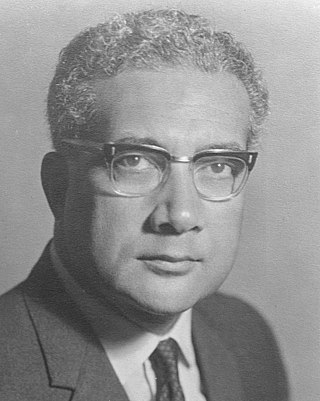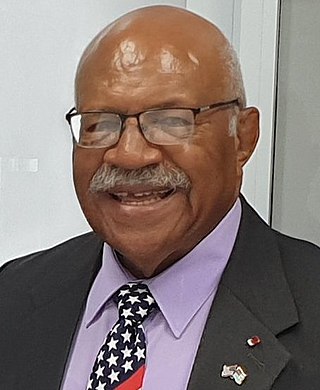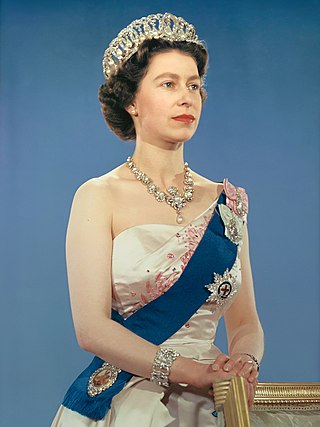Related Research Articles

Timoci Uluivuda Bavadra was a Fijian medical doctor who founded the Fiji Labour Party and served as the Prime Minister of Fiji for one month in 1987.

RatuSir Kamisese Mara,was a Fijian politician,who served as Chief Minister from 1967 to 1970,when Fiji gained its independence from the United Kingdom,and,apart from one brief interruption in 1987,the first Prime Minister from 1970 to 1992. He subsequently served as president from 1993 to 2000.

The Great Council of Chiefs is a Fijian constitutional body. It previously existed from 1876 to March 2012 and was re-established in May 2023.

RatuSir Penaia Kanatabatu Ganilau was a Fijian politician who served as the first President of Fiji,serving from 8 December 1987 until his death in 1993. He had previously served as Governor-General of Fiji,representing Elizabeth II,Queen of Fiji,from 12 February 1983 to 15 October 1987.

RatuSir George Kadavulevu Cakobau was a Fijian statesman and athlete. A great-grandson of Ratu Seru Epenisa Cakobau,the paramont chief of Bau who had unified all the tribes of Fiji under his reign in the mid-1800s,Ratu Sir George held the traditional titles of Vunivalu of Bau and Tui Levuka and thus was considered by many as Fiji's highest-ranking traditional chief. Ratu Cakobau was appointed Governor-General of Fiji in 1973,becoming the first indigenous Fijian to serve as the viceregal representative of Elizabeth II,Queen of Fiji.
Brigadier-General RatuEpeli Ganilau,MC,MSD,was a Fijian military officer and politician. His career previously encompassed such roles as Commander of the Fiji Military Forces and Chairman of the Bose Levu Vakaturaga. On 15 January 2007 he was sworn in as Minister for Fijian Affairs in the interim Cabinet formed in the wake of the 2006 Fijian coup d'état which deposed the Qarase government on 5 December 2006.

Sitiveni Ligamamada Rabuka is a Fijian politician,former soldier and former sportsman who has served as Prime Minister of Fiji since 24 December 2022. He was the instigator of two military coups in 1987. He was democratically elected as Prime Minister of Fiji,serving from 1992 to 1999,and again in 2022,leading a three-party coalition. He also served as Chairman of the Great Council of Chiefs from 1999 to 2001,and later as Chairman of the Cakaudrove Provincial Council from 2001 to 2008.

The Fijian coups d'état of 1987 resulted in the overthrow of the elected government of Fijian Prime Minister Timoci Bavadra,the deposition of Elizabeth II as Queen of Fiji,and in the declaration of a republic. The first coup d'état,in which Bavadra was deposed,took place on 14 May 1987;a second coup d'état on 25 September ended the monarchy,and was shortly followed by the proclamation of a republic on 10 October. Both military actions were led by Lieutenant Colonel Sitiveni Rabuka,then third in command of the Royal Fiji Military Forces.

Fiji's parliamentary election of March 1977 precipitated a constitutional crisis,which was the first major challenge to the country's democratic institutions since independence in 1970.

RatuNaiqama Tawake Lalabalavu MBE is a Fijian Paramount Chief and the current speaker of the parliament. He had served as the leader of the opposition.
Tovata is one of three confederacies comprising the Fijian House of Chiefs,to which all of Fiji's chiefs belong.
Since attaining independence from the United Kingdom on 10 October 1970,Fijian history has been marked by exponential economic growth up to 1987,followed by relative stagnation,caused to a large extent by political instability following two military coups in 1987 and a civilian putsch in 2000. This was followed by another military coup in 2006. Rivalry between indigenous Fijians and Indo-Fijians,rather than ideological differences,have been the most visible cleavage of Fijian politics. Later in 2020,Fiji was hit by the global COVID-19 pandemic,which affected the economy and the daily lives of the people.
Sir Vijay Raghubar Singh,KBE was an Indo-Fijian lawyer and politician who held Cabinet office in the 1960s and 1970s. Vijay Singh served in Prime Minister Ratu Sir Kamisese Mara's government in a variety of positions,including Attorney-General,and was president of the Indian Alliance,a division of the ruling Alliance Party. He quit the party in 1979 following disagreement with Alliance leadership and later joined the opposition National Federation Party. Vijay Singh was involved in the restructure of the Fiji sugar industry and was a leading member of the Jaycees movement in Fiji.

The Christian Democratic Alliance, better known locally by its Fijian name,Veitokani ni Lewenivanua Vakarisito (VLV),was a Fijian political party that operated in the late 1990s and early 2000s.
AdiAteca Moceiwaqa Mara Ganilau was a Fijian public figure and the eldest daughter of the former Prime Minister and President,the late Ratu Sir Kamisese Mara. Later in life she made many statements to the press about her family and the government.

Fiji was an independent state from 1970 to 1987,a Commonwealth realm in which the British monarch,Elizabeth II,remained head of state as Queen of Fiji,represented by the Governor-General. The state was the successor of the British Colony of Fiji which was given independence in October 1970 and it survived until the Republic of Fiji was proclaimed on 6 October 1987 after two military coups,at which time Queen Elizabeth II was removed as head of state,albeit,without any consent from the people of Fiji themselves.

The monarchy of Fiji arose in the 19th century,when native ruler Seru Epenisa Cakobau consolidated control of the Fijian Islands in 1871 and declared himself king,or paramount chief,of Fiji. Three years later,he voluntarily ceded sovereignty of the islands to Britain,making Fiji a crown colony within the British Empire.
Henry Roger Justin Lewis was a British lawyer who served as Solicitor General of Fiji from 1956 to 1963,and as Attorney General of Fiji from 1963 to 1970.
References
- ↑ "Glossary". Commonwealth Oral Histories. Retrieved 29 September 2015.
- ↑ "Glossary". Commonwealth Oral Histories. Retrieved 29 September 2015.
- ↑ Tupou, Sam. "My Version of Complete Truth about Fiji". Matangi Tonga Online. Retrieved 29 September 2015.
- ↑ McIntire, W. David (2014). Winding Up the British Empire in the Pacific Islands. OUP Oxford. pp. 127, 128, 271. ISBN 9780198702436 . Retrieved 29 September 2015.
- ↑ Lal, Brij V. "Amery and the Aftermath". A Time Bomb Lies Buried, Fiji's Road to Independence 1960–1970. Retrieved 29 September 2015.
- ↑ Lal, Brij V. (22 September 2006). Fiji. University of London: Institute of Commonwealth Studies. ISBN 9780112905899 . Retrieved 30 September 2015.
- ↑ "Senate 1973 : part 1". Fiji Parliamentary Papers. Retrieved 29 September 2015.
- ↑ "Senate 1979:Part 1". Fiji Parliamentary Papers. Retrieved 29 September 2015.
- ↑ "Senate 1980 : Part 1". Fiji Parliamentary Papers. Retrieved 29 September 2015.
- ↑ Lal, Brij V (November 2010). In the Eye of the Storm: Jai Ram Reddy and the Politics of Postcolonial Fiji. ANU E Press. ISBN 9781921666537 . Retrieved 29 September 2015.
- ↑ Miller, Laurel E.; Aucoin, Louis (2010). Framing the State in Times of Transition: Case Studies in Constitution Making. US Institute of Peace Press. ISBN 9781601270559 . Retrieved 29 September 2015.
- ↑ "The 1990 Constitution" (PDF). Fiji Leaks. Retrieved 29 September 2015.
- ↑ "Paul Shanahan". The Dominion Post. 21 November 2008. Retrieved 29 September 2015.
- ↑ "Managing Partner's Message" (PDF). Connecting.Me. Retrieved 29 September 2015.
- ↑ McMahon, Peg (10 October 1978). "Our Girls Primed for Top Challenge". The Age. Retrieved 29 September 2015.